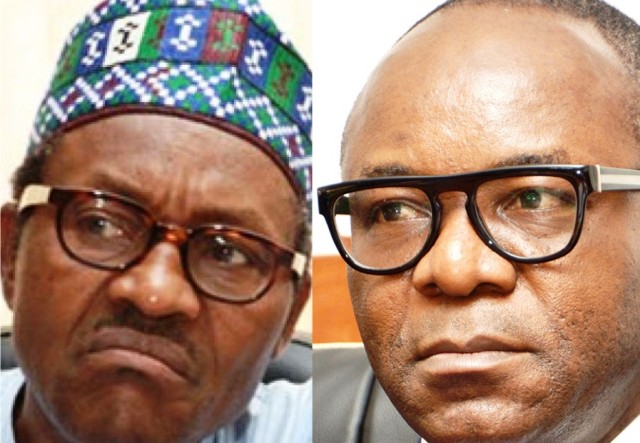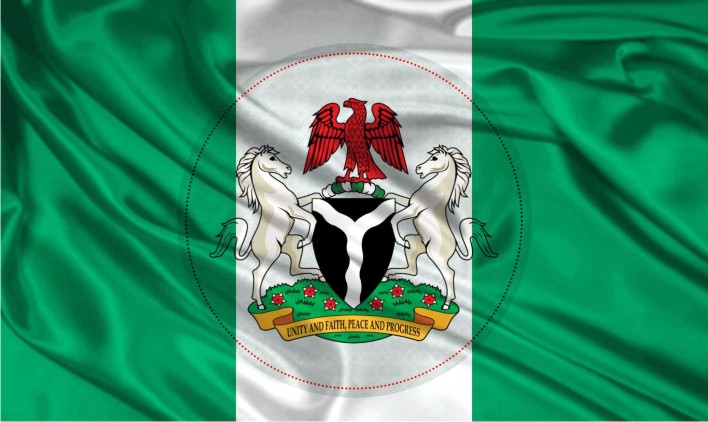Featured
Politics Of Oil, Solid Minerals …A Case Of Numbers Being Strength

The agitation for economic integration, political relevance and environmental protection by individuals and interest groups within the Niger Delta did not start today. Before it snow-balled into full-blown insurgency, well-meaning elite and indeed political and environmental activists had at various times made the case for the respect of the universal law on land ownership and why Nigeria’s Land Use Decree was an enactment of oppression.
Men like Chief (Senator) Melford Okilo, Chief Harold Dappa Biriye and Ken Saro Wiwa among others of blessed memory were civil in their agitations, arguments that drew global support for their noble cause. They insisted that the act of denying land owners proceeds of their inheritance was barbaric, suffocating, marginalizing and indeed oppressing.
Even with facts of history on the issue of derivation, the level of environmental hazards occasioned by oil prospection and production, the pollution of the people’s rivers and swamps, the threat to their major occupations, fishing and farming and above all, the discrimination against the youth of the affected areas, the political class weighed heavily in favour of the majority tribes dismissed the people’s agitation with a wave of the hand.
So frustrating, even the issue of derivation was also politicised. Infact, it was a case of persistent civil protest from one government to another, both civilian and military. At some point under the Buhari military leadership, derivation was as low as 1.5 percent, even with all the environmental degradation suffered by the people.
What was most annoying was that the people of the rural areas, where, oil was daily being drilled, saw electricity light in house-boats and estates of oil companies but used kerosene lamps.
The people saw oil company workers drinking bottled water and threw the wastes into their rivers, which also obstructed fishing, but drank from wells and sometimes stagnant water.
That two-class syndrome also ignited the vulnerability of the girl-child, who became play thing for highly paid oil workers. The freebies such vulnerable girls got from the predatory pastime of the red-eyed workers encouraged easily prostitution and sent many out of schools.
Employment of the males was also a pipe dream. Each oil company involved in the production of oil went to the rural communities with their own work force, and ensured sustenance of the status quo by manipulating posting of youth corps members from their own tribes who are eventually employed, instead of the qualified many within the community and state.
Even the Act providing low level jobs for locals was observed in the breach. With that, the frustrated youth thus became mere tools in the hands of oil workers, to whom they served as pimps, for cutting grass at the estates of the companies, sparingly as night guards and at other times for clearing of gutters.
Interestingly, because operational modus was signed directly with the Federal Government, the oil bearing communities, with all their environmental stakes were insulated from the operations or got peanuts. Like the proverbial man surrounded by water with none to drink, the Niger Delta youth saw unbridled affluence and financial rascality daily flaunted by oil workers to lure their sisters, aunts and even mothers out of matrimony, but could not touch.
That indeed further fuelled the violent agitation. With nothing to rely on for sustenance, since their rivers and seas were covered by oil wastes and sometimes leaks from their pipes with devastating effects on all sea creatures, sea foods like periwinkles, oysters, shrimps and mangrove crabs among others daily exterminated by pollutants and with no hope of change, what was once a civil debate, humble protest, mature agitation and simple appeal by the elite turned to violent threats, militancy and insurgency.
The major demand became Resource Control, and arrangement which would allow the people and governments of oil producing communities and states to control the resources from their God-given land, as obtains everywhere in the free world. The youth wanted true and practical federalism which would force states to pay taxes through the management of their own resources.
But for over 50 years, that simple request remains unanswered. Each time, their protestation turned to a violent kind, given that a hungry man is near-frequently an angry man, the oppressors would demonstrate their heavy handedness through the deployment of arms and ammunition to quell any insurrection while the central issue remained unsolved.
In all these years, the argument put forward by the political elite of the majority North and their South Western collaborators has been that oil is a gift from God and so belongs to all, therefore, primary owners of the land, being Nigerians, cannot lay claim of singular ownership to such resources. According to them, since the treasure remained buried beneath the land, within Nigerian geographical space, it belongs to all Nigerians, and so must be centrally manage, as if the Niger Delta became Nigeria by choice.
With that conclusion, proceeds from oil go faraway Abuja to sustain even states that contribute little or nothing, apart from being lucky to be under the protection of the majority.
That is also why the Petroleum Industry Bill (PIB) has not been passed for nearly six years. Part of the bill seeks to make paltry allowance for oil bearing communities, not just to give them a sense of belonging but also instill in them the need to protect oil company assets located in their arears, since they are direct beneficiaries.
That too appears to the strong majority opposition too much of a sacrifice, since oil is simply a gift from God. But to whom? The same God that gave the North more fertile land for agricultural and livestock activities and rivers and swamps to Rivers, Bayelsa, Delta, Akwa Ibom, Cross River, Delta, Edo, among others for fishing? With such rivers, seas and swamps polluted by production of a commodity that now belongs to all, would the North also willingly share proceeds of their agricultural earnings?
Each time these questions are raised, the answer has remained the same. Oil, being buried beneath the land within Nigeria’s territory, remains a gift from God. But in their comfort zone, they forget that those who make peaceful change impossible make violent change inevitable, as the sages say.
Could that have accounted for the large scale insurgency under the Yar’Adua Presidency and subsequent pronouncement of amnesty? Unfortunately, all other projects that went with the amnesty, especially the East West Road still remain uncompleted. Still too much infrastructural deficit. Still too much discrimination against qualified manpower of Niger Delta origin.
Bottomline, Niger Deltans cannot claim benefits from their own lands, because everything sourced therefrom is a gift from God, and belongs to all.
That is why it came to me as a rude shock last week, to read that the Adamawa State Government, in Northern Nigeria is to start exporting solid minerals including uranium, gold, lead, diamond and platinum, according to that state’s Commissioner for Solid Minerals, Shanti Shashi.
Infact, Commissioner Shashi said BTP, a Swiss company has signed a $56bn contract for solid minerals exploration in a very short while.
When did gold, lead, diamond, platinum and uranium become cash crops? What different law excludes these products, buried beneath the land as Gift from God? Or is it simply a green light for resource management and control?
It is most unlikely, because even as recent as last week, President Muhammadu Buhari alluded to the fact that with all the talk about diversification of the economy, oil production still remains the mainstay of the Nigerian economy, and so would do everything humanly possible to improve production and by extension, improved earnings.
My Agony is that it is very likely that the policy of resource control would come into effect, now through the back door, and later officially only when oil in the Niger Delta dries up completely. That will be when, Borno State begins oil production in large quantities.
Here, perhaps is a window for state governments in oil bearing Niger Delta to go into partnerships with willing foreign investors to start oil prospection and production before oil dries up.
Let’s not dismiss this merely as view thought out in recession, with a near empty stomach. It is a window shut for over 50 years of oil exploration.
Soye Wilson Jamabo
Featured
FG To Seize Retirees’ Property Over Unpaid Housing Loans

The Federal Government Staff Housing Loans Board says it has begun the compilation of list of retired civil servants who have defaulted on the full repayment of housing loans obtained.
Head of Information and Public Relations, FGSHLB, Mrs Ngozi Obiechina, disclosed this in a statement in Abuja, yesterday.
Obiechina quoted the Executive Secretary of the Board, Mrs Salamatu Ahmed, as saying that the move was aimed at recovering mortgaged properties from retirees who failed to meet their loan obligations.
Ahmed noted that the decision followed a recent memo issued by Mrs Patience Oyekunle, Permanent Secretary, Career Management Office, Office of the Head of the Civil Service of the Federation.
According to her, the memo reminded public servants of the mandatory requirement to obtain a Certificate of Non-Indebtedness to the FGSHLB and MDA Staff Multipurpose Cooperative Society as a precondition for retirement.
The Executive Secretary said that the board would take necessary legal steps to repossess properties where applicable, in line with the terms of the loan agreements.
She said this was in line with the provisions of the Public Service Rules 021002 (p), issued by the Office of the Head of the Civil Service of the Federation.
“I am directed to bring to your attention the provision of Public Service Rule (PSR) 021002 (p), which mandates all public servants to obtain a Certificate of Non-Indebtedness as a prerequisite for retirement.
“The Federal Government will commence the seizure of mortgaged properties belonging to retiring federal public servants who have failed to fully repay housing loans obtained from the board,” she said.
Ahmed explained that the FGSHLB reserves the legal right to repossess any mortgaged property in cases where a public servant exits service without fully repaying the loan.
She reiterated that the directive also applied to already retired officers who were still indebted.
She urged all affected public servants to regularise their loan status and obtain the required clearance certificate without delay.
“The board is currently compiling a list of such retirees, which will be forwarded to relevant regulatory agencies for debt recovery.
“The FGSHLB remains committed to enforcing compliance and ensuring proper loan recovery procedures are followed, “ she added.
Featured
FG Begins Induction For New Permanent Secretaries, Accountant-General

The Federal Government has kicked off a three-day induction programme for newly appointed Permanent Secretaries and the Accountant-General of the Federation, aimed at equipping them for strategic leadership and effective policy implementation.
The induction, according to a statement yesterday by the Director, Information and Public Relations, Federal Ministry of Information and National Orientation, Eno Olotu, which commenced on Wednesday, is being held at the National Counter Terrorism Centre in Abuja.
Speaking at the opening session, the Head of the Civil Service of the Federation, Mrs. Didi Esther Walson-Jack, congratulated the new appointees and described their roles as pivotal to governance and national development.
“Permanent Secretaries are the engine room of the government. They are critical to driving policy implementation, institutional performance, and reform across the service”, she said.
The Federal Government has kicked off a three-day induction programme for newly appointed Permanent Secretaries and the Accountant-General of the Federation, aimed at equipping them for strategic leadership and effective policy implementation.
The induction, according to a statement yesterday by the Director, Information and Public Relations, Federal Ministry of Information and National Orientation, Eno Olotu, which commenced on Wednesday, is being held at the National Counter Terrorism Centre in Abuja.
Speaking at the opening session, the Head of the Civil Service of the Federation, Mrs. Didi Esther Walson-Jack, congratulated the new appointees and described their roles as pivotal to governance and national development.
“Permanent Secretaries are the engine room of the government. They are critical to driving policy implementation, institutional performance, and reform across the service”, she said.
“The expectations are high, and the responsibility is immense. But with commitment and teamwork, we can deliver a more efficient, accountable, and citizen-centred public service.
“This final lap of FCSSIP 25 calls for urgency, accountability, and strategic focus. You must translate vision into measurable results,” she stated.
In her welcome address, the Permanent Secretary, Career Management Office, Mrs. Fatima Sugra Tabi’a Mahmood, described the programme as a strategic investment in leadership capacity and institutional effectiveness.
The sessions featured expert-led discussions, simulations, and strategic briefings facilitated by a distinguished faculty, including Engr. Suleiman Adamu, former Minister of Water Resources; Dr. Hadiza Bala Usman, Special Adviser to the President on Policy and Coordination; Mrs. Beatrice Jedy-Agba, Solicitor-General of the Federation and Permanent Secretary, Federal Ministry of Justice; Alh. Yusuf Addy, retired Federal Director; Alhaji Bukar Goni Aji, former Head of the Civil Service of the Federation; Amb. Mustapha Lawal Suleiman, Mr. Adesola Olusade, and Dr. Ifeoma Anagbogu, all retired Permanent Secretaries.
Participants include Dr. Obi Emeka Vitalis, Mrs. Fatima Sugra Tabi’a Mahmood, Mr. Danjuma Mohammed Sanusi, Mr. Olusanya Olubunmi, Dr. Keshinro Maryam Ismaila, Dr. Akujobi Chinyere Ijeoma, Dr. Umobong Emanso Okop, Dr. Isokpunwu Christopher Osaruwanmwen, Mrs. Oyekunle N. Patience, Dr. Kalba U. Danjuma, Mr. Nadungu Gagare, Mr. Onwusoro I. Maduka, Dr. Usman Salihu Aminu, Mr. Ogbodo Chinasa Nnam, Mr. Ndiomu Ebiogeh Philip, Dr. Anuma N. Ogbonnaya, Mr. Adeladan Rafiu Olaninre, and Mr. Mukhtar Yawale Muhammed, alongside the Accountant-General of the Federation, Mr. Shamseldeen Babatunde Ogunjimi.
The induction programme will feature sessions on public sector leadership, policy delivery, ethics in service, digital transformation, and performance management.
Featured
NNPCL To Undergo Forensic Audit Soon -FG

The Minister of Finance and Coordinating Minister of the Economy, Wale Edun, has announced that a forensic audit of the Nigerian National Petroleum Company Limited (NNPCL) will begin soon.
Edun revealed this at the ongoing Nigerian Investor Forum, held alongside the IMF/World Bank Spring Meetings in Washington DC.
The minister explained that the recent changes in the NNPCL management are part of a broader effort by the Federal Government to clean up and examine the company closely.
While addressing top global investors, including representatives from J.P. Morgan, Edun shared key reforms the government has introduced to revive the economy and restore investor confidence.
He told the investors that the government’s bold economic steps have laid a strong foundation to attract private investment.
He stated, “Our goal is not just to maintain this momentum, but to accelerate it. We are targeting seven per cent annual growth, and we believe the policies we have implemented have laid the groundwork to achieve this.”
Edun highlighted that President Bola Tinubu’s administration has rolled out major reforms that are already making a difference.
He added that the Nigerian economy grew by 3.84 per cent in the fourth quarter of 2024 and recorded a 3.4 per cent growth for the year.
Edun further stressed the importance of the reforms, describing them as “unprecedented,” adding that, “We said we would do it, and now we have done it. This time, we’re staying the course.”
He pointed out signs of progress such as lower budget deficits, a better trade balance, and a more stable exchange rate.
He also said that the focus is now on growing key sectors, especially agriculture.
According to Edun, agriculture is at the top of the government’s agenda, with the aim of improving food supply and increasing productivity.
“We aim to close the food supply gap, not by importing more, but by enabling domestic producers to scale and innovate,” he said.
On infrastructure, Edun revealed that the government has rolled out 90,000km of fibre optic cable to improve internet access.
He said this move is crucial for supporting young Nigerians and tech startups.
He also noted that 4,000km of roads have been offered for private sector participation, with the first 1,000km already approved for construction.
-
News3 days ago
Army Chief Gives Troops One Month Marching Order To Flush Out Bandits In Niger, Kwara
-

 Nation3 days ago
Nation3 days agoMonarch Preaches Peace As He Unveils Palace
-
Niger Delta3 days ago
Eno Promotes ARISE Coordinator To Perm Sec
-
Business3 days ago
Multipurpose Terminal Hosts 6,606-Foot Capacity Vessel In Onne
-
Politics3 days ago
Speakers Conference Tasks FG, Governors On Wanton Killings
-
News3 days ago
Court Okays Arrest, Detention Of Six CBEX Promoters
-

 Featured3 days ago
Featured3 days agoFG To Seize Retirees’ Property Over Unpaid Housing Loans
-
Niger Delta3 days ago
Diri Okays Ongoing Projects’ Progress

